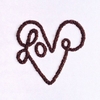An access code consists of of a letter followed by four digits. Any letter can be used, the first digit cannot be 0, and the last digit must be even. (a) Find the number of possible access codes. (b) What is the probability of randomly electing the correct access code on the first try? (c) what is the probability of not selecting the right access code on the first try?
Answers (1)
Know the Answer?
Not Sure About the Answer?
Find an answer to your question 👍 “An access code consists of of a letter followed by four digits. Any letter can be used, the first digit cannot be 0, and the last digit ...” in 📗 Mathematics if the answers seem to be not correct or there’s no answer. Try a smart search to find answers to similar questions.
Search for Other Answers
You Might be Interested in
sage has a hot dog stand. Last week he spent $13 for hot dogs and supplies. He earned $25 what was his profit
Answers (1)
What is the value of - 5.872 + (-5.1) : 1.5? (a.) - 9.272 (b.) - 2.472 (c.) - 7.315 (d.) 0.515
Answers (1)
Why would you create a frequency table before creating a histogram?
Answers (2)
Below are the yearly salaries of assistant high school cheerleading coaches in Hennepin County (in thousands of dollars). 4.5 5.1 6.6? 5.8 6 If the mean of the data set is 5 thousand dollars, find the missing salary.
Answers (1)
Is 5 a perfect square
Answers (2)
New Questions in Mathematics
A newspaper reporter wants to know how popular the hobby of bird watching is in the city. He asked people at the local bird refuge if they watched birds as a hobby. Which of the following best explains whether the reporters data is valid or not?
Answers (1)
I am very confused on how to figure out if y = 3/4x is proportional?
Answers (2)
Alison wants to buy a mountain bike for $339.12. If she saves $28.26 each month, in how many months will she be able to buy the bike?
Answers (2)
At 12 o'clock the temperature was 7°C. The temperature decreased by - 20°C. What is the new temperature?
Answers (1)
Ashleys rentals charges $27.50 per hour to rent a surfboard and a wetsuit. Darlas surf shop charges $23.25 per hour to rent a surfboard plus $17 extra for a wetsuit.
Answers (1)

